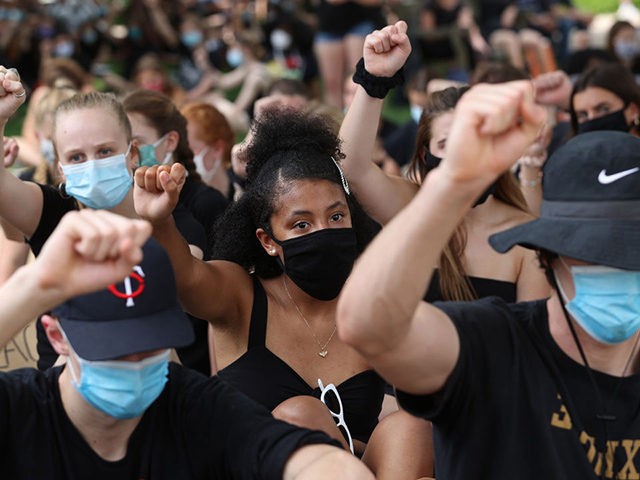Almost 70 percent of people who approve of cancel culture say they are most concerned about economic, healthcare, or retirement issues in the 2020 elections, according to a survey by Morning Consult.
The poll asked 1,991 registered voters, “What would you say is the top set of issues on your mind when you cast your vote for federal offices such as U.S. Senate or Congress?” Twenty-nine percent of the 636 respondents who approve of cancel culture said economic issues, 27 percent said healthcare issues, and 11 percent said Medicare and Social Security, according to the July 17-19 poll of 1,991 registered voters.
The five alternative choices — national security, women’s issues, education issues, energy issues, and “other” averaged a score of just 6.5 percent.
Sixty-seven percent of the 1,991 respondents said they are familiar with “cancel culture.” and 32 percent — or 636 respondents — said they approve of it. Just one-in-six of the 32 percent of the respondents who approve of cancel culture say the country is moving on the right track.
The poll set a narrow definition of cancel culture as: “the practice of withdrawing support for (or canceling) public figures and companies after they have done or said something considered objectionable or offensive. Cancel culture is generally discussed as being performed on social media in the form of group shaming.”
A plurality of the people who approve of cancel culture said they want it to go further, with 20 percent saying it has gone too far, and 26 percent saying it has not gone “far enough.”
Seventy-two percent of the 801 people (40 percent of the poll) who have participated in cancel culture say the results are very or somewhat positive.
Overall, 47 percent of Democrats strongly or somewhat support “cancel culture.” Only 29 percent oppose the practice. Among GOP voters, the scores were 18 percent for, 61 percent against.
Among the critical block of swing voters, the result was 30 percent for cancel culture, 44 percent against.
Cancel culture has a positive impact on society, say 45 percent of liberals, 26 percent of “moderates,” and 13 percent of conservatives.
Cancel culture is most supported by people who spend more than four years in college. Twenty-nine percent of non-college Americans support the movement and 43 percent oppose. But 42 percent of post-graduates support cancel culture and 42 percent oppose.
Male liberals are the strongest supporters. Forty-four percent of Democratic men — but 37 percent of Democratic women — say the movement has had a beneficial impact. Just 14 percent of GOP women and 15 percent of conservatives support cancel culture, while 53 percent of liberals support the movement.
“Homemakers” oppose group shaming by 22 percent to 42 percent.
People who approve of Trump oppose group shaming 19 percent to 63 percent, while people who disapprove of Trump support group shaming by 42 percent to 32 percent. People who strongly disapprove of Trump support group shaming 45 percent to 29 percent.
When asked if cancel culture has gone too far, 46 percent say it has gone too far, while just 10 percent say it has not gone far enough.
Hispanics split 41 percent “far enough” to 11 percent “not far enough.”
Black respondents split 20 percent to 20 percent, but roughly 60 percent of them responded with “don’t know/no opinion” or neither.”

COMMENTS
Please let us know if you're having issues with commenting.